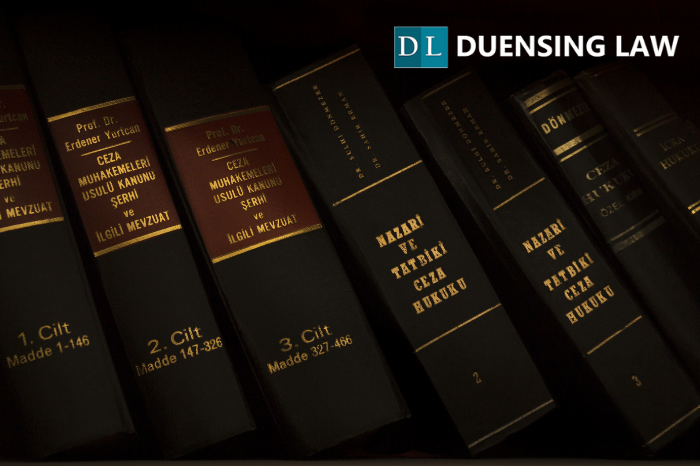Whether you are planning to get married, are in the process of getting a divorce, or are amidst a separation between you and your spouse, it is imperative that your Will is valid. Our Wills and succession lawyer in Toronto can assist you in appropriately reflecting your wishes and proper distribution of your estate and assets to only those that you have appointed.
Duensing Law can provide you with experienced legal advice in succession planning strategies in Toronto so that you can develop an estate plan that properly fits your goals and aspirations.
When it comes to estate planning and important documents, such as Wills, you should have a valid legally binding document that reflects your current and future wishes. We answer why a Will is crucial in matters of marriage, divorce and separation circumstances so that you are best suited for sensitive matters.
Does a Marriage Invalidate a Will?
In Ontario, if you have a legal Will before your marriage, it is automatically annulled upon marriage. To avoid this outcome, you can make a Will before the matrimony takes place. A Will validated before marriage must include a legitimate statement referencing the upcoming marriage and the name of your partner.
It is highly recommended that you thoroughly read your registered plan and insurance designations prior to your marriage so that they will not be revoked upon your legal partnership. You can prove that your Will is conditional on your future marriage to avoid instances of full Will annulment.
The rules concerning marriages invalidating Wills will change in 2022. It is prudent to employ the legal services of our team to ensure that your marriage does not jeopardize the validity of your Will.
Is a Will Revoked By Divorce?
In case of a divorce, your Will remains effective only for your benefit, and any spouse implications are immediately annulled.
When you divorce after your Will has been signed, your existing Will remains valid. However, the paragraphs that incorporate benefits for your former spouse, will be revoked. All clauses giving your former spouse property, ownership of your assets or appointing your former spouse as an executor automatically become invalid.
In Ontario, these rules are only applicable to those marriages that have terminated in divorce. This does not include legal partnerships that have ended due to separation. Separation does not impact the validity of the Will, and it is advised to update your Will if you choose to not benefit your spouse after you have separated.
However, these rules will change in 2022. It is prudent to employ the legal services of our team to ensure that your Will is updated properly.
What is a Mirror Will?
A ‘Mirror Will’ is written by both spouses, following their wishes to ‘mirror’ their intentions. For example, both spouses can agree to give 50% of their personal property to each other, and leave the other 50% to their children. Mirror Wills are legally binding documents under Ontario Law, however, they do not create legal obligations between the spouses.
Mirror Wills enable the spouses to decide how their estate and assets should be distributed, but there is no law preventing one of the spouses from revoking the Mirror Will without the other spouse knowing. Additionally, one of the spouses can change the contents of the Mirrored Will at a later date if they choose to remarry.
If one spouse annuls a Mirrored Will, the implications of the legally binding document do not change.
Ensure that your wishes and objectives are taken care of, and enlist our legal counsel in advising you through Will guidance.
What are the Three Conditions to Make a Will Valid?
Under the Succession Law Reform Act of Ontario, a Will must include three legal requirements to be valid as a legally binding document. They are:
- The Will must be in writing: This does not entitle a Will that is typed out and then signed by the testator. The purpose of this rule is to ensure that the document represents the exact wishes of the Will creator.
-
- The Will must be signed and dated: The testator must sign the Will, preferably with pen and ink. The testator’s signature must be presented at the end of the document.
- Valid Witnesses: Witnesses must be legal adults over the age of 18 that can sign the Will, stating that the testator is mentally competent or is not unfairly influenced by a third party. Your witnesses cannot be named executors, and cannot be beneficiaries or their spouses. If the witness is a beneficiary, the distributions of your assets might not be considered valid.
Is Your Will Valid in Ontario? | Our Wills and Succession Lawyer in Toronto Can Help!
Ensure that your Will is legal and clearly expresses your wishes in all circumstances. Whether you are getting married, presently married, filing for divorce or have separated from your spouse, Duensing Law can help you craft your Will to appropriately distribute your assets to the appropriate people, according to your wishes.
Contact us for a complimentary consultation and speak with our experienced law firm today. Duensing Law will save you unnecessary trouble and expense by helping you create a successful and official estate plan. To schedule an appointment or contact us for a consultation, email us at info@duensinglaw.com or call us directly at (416) 601-4769.



Comments are closed.